You go about your day believing you’re safe until the unexpected happens. A stranger follows you home. Smoke fills your kitchen. Your car stalls on a dark road. In those moments, panic takes over, and the wrong instinct can be deadly. Statistics show that most people make simple mistakes in emergencies, not because they don’t care, but because they never knew better. This article gathers powerful, life-saving hacks that protect you when no one else is there to help. Read them now, because when the moment strikes, it may already be too late.
The Dangers of Second Location

If someone threatens you with a weapon and insists you go with them, do not. Victims rarely survive or escape from a second, more controlled location.
Criminals want privacy, and moving you gives them control. Even if resisting seems risky, your chances of survival are higher in public than in a hidden place, echoed u/LiamWil_420.
That same user put it bluntly: “If they kill you while trying to take you, it’s probably faster and better than what they’ll do to you at the second location.”
The Real Bathroom Hazard

Sharks get all the bad press, but statistically, toilets are far more dangerous. Around 40,000 toilet-related accidents occur in America every year, a number far greater than shark attacks.
When you go out, ALWAYS look for something you can hold. It sounds absurd, but emergency rooms treat them regularly.
So the next time you laugh at someone who fears sharks, remember the porcelain throne has sent far more people to hospitals. But while you’re laughing at that, the next danger is hiding in plain sight every time you take a road trip.
The Dashboard Trap

It might feel relaxing to stretch out on a road trip, but airbags deploy at hundreds of miles per hour. Resting feet on the dashboard makes them a weapon.
As u/thesecret777 explained, the force of an airbag can shatter legs, crush knees, or even drive bones into the face. In accidents, this position is often catastrophic.
The habit looks casual but has serious consequences. Feet down, seatbelt secure. Road comfort matters, but safety comes first—airbags protect best when passengers sit properly upright.
A Salty Warning

Most people don’t expect danger in their drink, but a strange salty taste is a red flag. GHB, a common date-rape drug, is often described as noticeably salty.
Never ignore a taste that feels off. Stop drinking immediately and discard it. Even if you doubt yourself, it’s safer to be cautious than risk being drugged.
And most importantly, never leave your drink unattended. Watch it being poured, keep it in sight, and stay alert in crowded environments. And speaking of drinks—what if the danger isn’t in your glass, but beneath your feet in frozen water?
Find the Darkness

Instinct says swim toward light, but with ice, the opposite is true. The sun reflects off frozen surfaces, while the hole you entered stays darker and shadowed. Light usually means ice. Darkness means escape.
“If you fall through the ice… the dark spot is the way out. Edit > the sun reflects off the ice surface. The spot you entered has no ice or reflection, so will be dark … opposite what we would naturally think,” explained by u/hittingpoppers.
Focus on the dark patch, move with determination, and you’ll find your way back to air, warmth, and survival. But if you don’t want to stay longer and keep finding, do this next safety tip right at the moment you fall.
Backtrack to Survive

Instinct tells most people to crawl forward. But the ice ahead already failed you once—it’s weaker, thinner, and likely to break again.
Redditor u/wallythewalleye offered a smarter survival tactic: grab the ice behind you. That surface held your weight before, which means it’s stronger and gives a better chance of climbing out.
It feels counterintuitive in the panic, but it works. Pulling backward onto proven ground minimizes risk. But escaping the ice is one thing—what about the dangers you invite just by being distracted on the street?
Not-So-Perfect Place for Music

Predators often search for easy targets, and distracted people top their list. Walking alone while texting or listening to music lowers your awareness, making you less likely to notice approaching danger.
Even if you feel safe in your neighborhood, your attention is split. That pause to change a playlist or check a message creates opportunity. Awareness discourages criminals more than physical strength.
Save scrolling for safe spaces, and remember—confidence and alertness send a strong signal: I’m paying attention, choose someone else. Yet sometimes, the deadliest warnings don’t come from people at all—they come from strange smells in your own home.
The Fishy Smell You Shouldn’t Ignore

Sometimes danger doesn’t come with smoke or flames. An unexplained fishy odor in your home may actually be the first sign of an electrical fire beginning behind walls or outlets.
According to u/Jeremyvts, overheated wiring insulation can release that smell before visible damage occurs. It’s easy to dismiss as odd or harmless—but ignoring it could allow a fire to spread silently.
If you notice it, don’t wait. Turn off the power to suspicious areas and call an electrician immediately. Catching it early could prevent a house fire.
Don’t Announce Your Absence
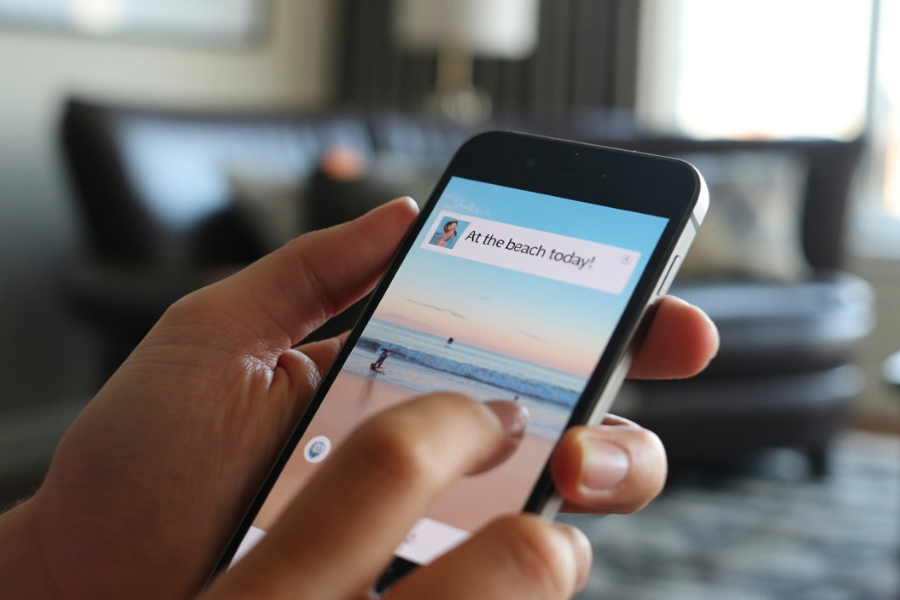
Thieves have learned to scan social media for check-ins, vacation updates, or casual posts about being away. To them, this signals an empty home ready for burglary.
Even harmless updates like “at the beach” or “out with friends” can tell the wrong people that your house is unattended. Burglars rely on timing, and oversharing makes their job easier.
Posting after still lets friends see your adventure without broadcasting an invitation to potential thieves. And while oversharing online can put your home at risk, sometimes the biggest danger comes during something as ordinary as dinner.
Choking Is Always Silent

When someone coughs loudly at the table, it may look scary—but it isn’t choking. Coughing means air is still moving, and the body is trying to clear the blockage.
The real danger comes when silence falls. As u/eatenface pointed out, a choking person often goes quiet, panics, and may clutch or point to their throat instead of speaking.
That’s when it’s time for the Heimlich maneuver. Quick, firm abdominal thrusts can dislodge the object before oxygen loss causes collapse. Silence, not coughing, is the true alarm.
Hangover Mistake

Tylenol, or acetaminophen, is processed by the liver—the same organ already strained from breaking down alcohol. Taking it while hungover can tip your system into liver failure, even at regular doses.
Instead, ibuprofen is safer because it’s processed differently. Combine that with water, electrolytes, and time, and you’ll recover without adding unnecessary risk to an organ that’s already overworked.
“Taking Tylenol could quite literally put you into liver failure. Instead, take ibuprofen and work on rehydrating yourself,” u/internetgorilla bluntly advised. However, not all threats come from medicines—the next one might strike without warning.
Approach Horses This Way

Horses have blind spots directly in front of their nose and behind their tail. Startling them from those angles can cause them to kick or bolt, injuring both of you.
The safest approach is from the side, between the head and the shoulder. This allows the horse to see and recognize you, preventing panic while also keeping you within safe range.
Horses are flight animals by instinct. Moving carefully, speaking softly, and respecting their space helps ensure cooperation. A calm introduction reduces the chance of accidents for both humans and animals.
The Snow Trap Around Trees

Snow hides hazards. Around trees, deep pockets of loose snow called “tree wells” can form. Skiers or snowboarders who fall into them often become trapped upside down, unable to breathe.
In one discussion, u/MetamorphicMermaid warned that suffocation can happen almost instantly. Even skilled athletes underestimate how silently it happens. Victims vanish within feet of others, and without help, they don’t reemerge.
The best prevention is distance. Avoid skiing close to tree trunks in heavy snow, and always ride with a partner who can pull you out if disaster strikes. But snow isn’t the only thing you should watch out for! Sometimes it’s as simple as forgetting to press a button when you get into your car.
Lock First, Settle Later

Many people unlock their car, climb inside, and sit fiddling with their wallet, phone, or music—while leaving the doors open. This is an easy window of opportunity for criminals.
As u/headstrong_ninja explained, the moment you get inside, you should immediately relock. It takes only a second, but it creates an instant barrier against anyone trying to sneak in.
Think of it as a habit, like buckling a seatbelt. Lock first, settle second. That tiny reflex might be the only thing separating safety from a frightening confrontation.
Orange to the Thigh, Blue to the Sky
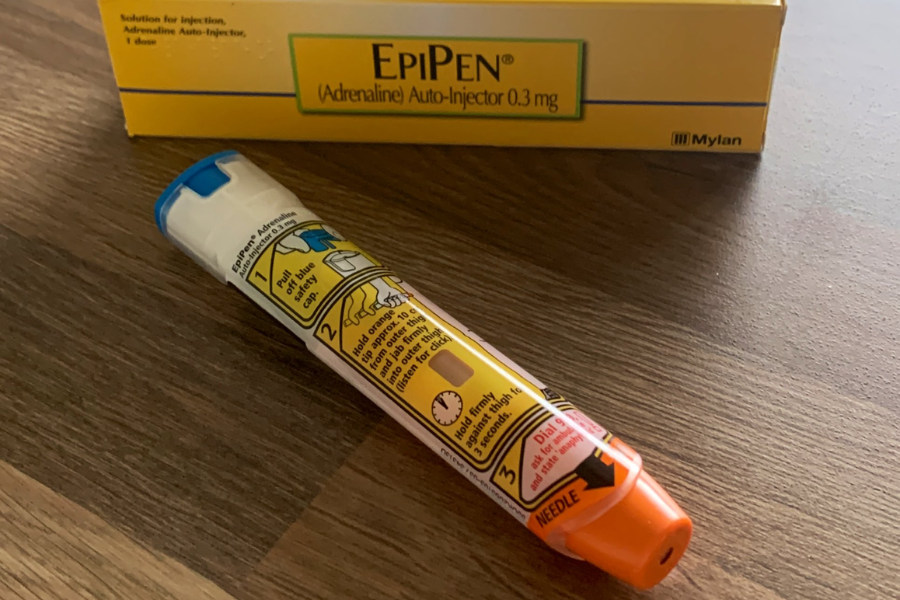
Epi-pens save lives during allergic reactions, but in the chaos, it’s easy to forget how to use them. The simple rhyme—orange to the thigh, blue to the sky—guides placement.
Redditor u/_AVA explained that this phrase helps orient the injector instantly, even in panic. Correct positioning ensures the medicine reaches the bloodstream quickly, giving precious minutes until emergency care arrives.
Another reminder came from u/Nookumz_99—never place your hands over the top or bottom. Accidental self-injection can be deadly, especially if you don’t require epinephrine. Technique matters as much as timing.
Daylight Doesn’t Mean Safe

Many burglars don’t bother breaking in—they just test doorknobs until they find one unlocked. Daytime, nighttime, even when you’re home—it doesn’t matter if the door is open.
It feels natural to relax when the sun’s out or when you’re inside. But thieves rely on opportunity, and convenience is their ally. A locked door immediately changes their plan.
Think of it like buckling a seatbelt. You don’t expect an accident, but you prepare anyway. Life-threatening emergencies can strike in seconds. Even something as ordinary as taking a nap can become very dangerous.
The Deadly Nap
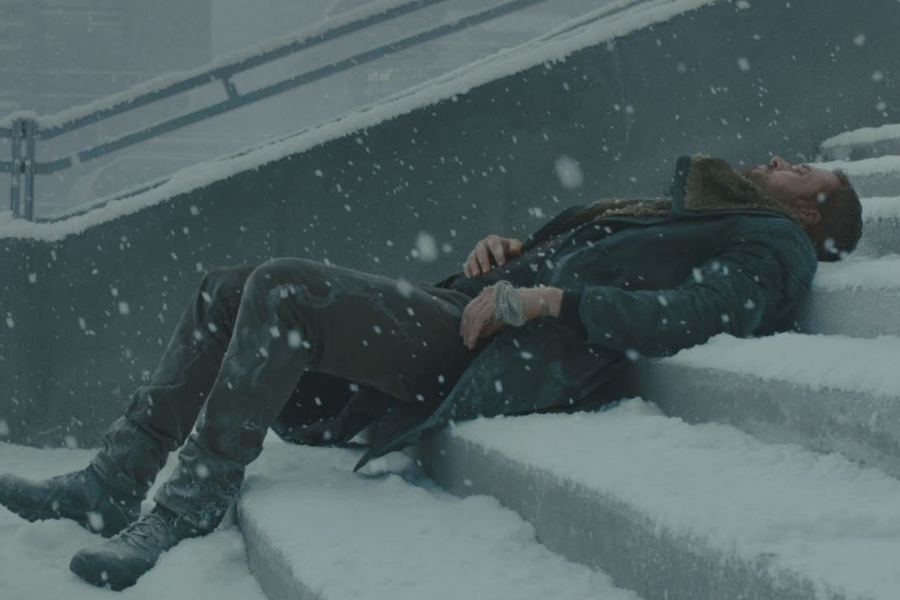
Alcohol and cold weather can be a deadly mix. Impaired judgment makes it easy to underestimate how quickly hypothermia sets in, especially if someone decides to lie down “just for a minute.”
One Reddit user, u/Narrow_Parsnip1053, recalled a friend who tragically died this way. She planned only to rest but slipped into unconsciousness, never waking up. The cold accelerates alcohol’s effects.
The takeaway is simple: no matter how invincible you feel while intoxicated, never walk home alone in freezing weather. Because when tragedies like this strike, you need someone to call 911. If you’re the one calling, remember this one detail you need to say before anything else…
Say the Address First
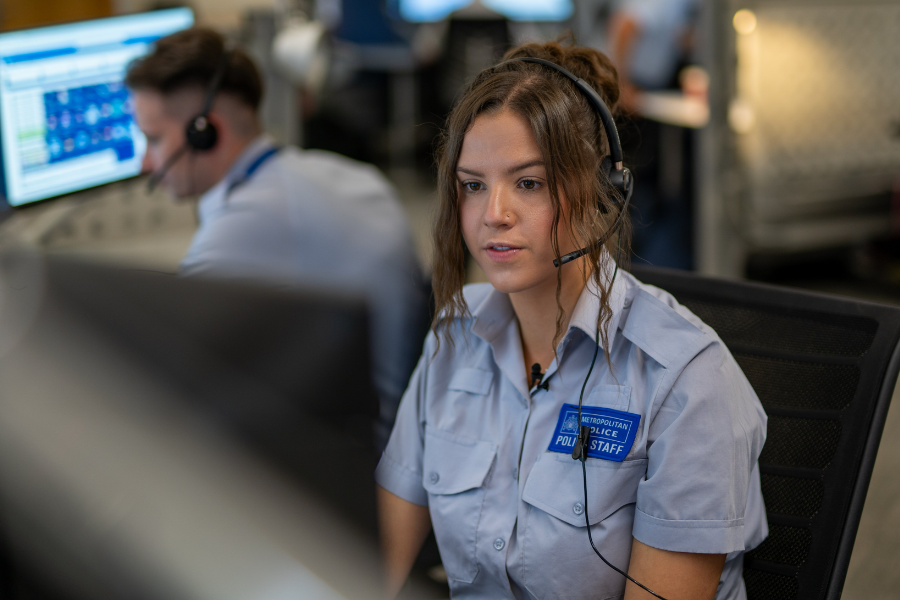
In an emergency, the instinct is to explain the situation first. But dispatchers can’t send help until they know where you are, even if the line goes dead immediately.
A former 911 operator on YouTube, @moderategiantx3374, said too many callers poured out details before giving an address. Without location, their stories wasted precious time that could have saved them.
Make it a habit: start with the address, then explain the emergency. That way, even if the call drops, help already knows exactly where to go.
The Front Isn’t Safe
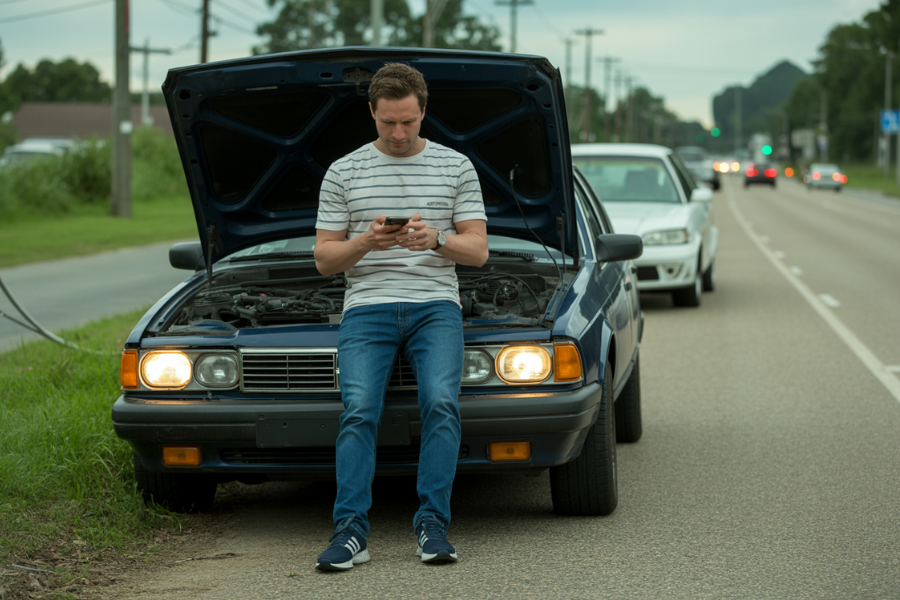
It feels natural to wait near your car after it breaks down, but standing in front is risky. Passing drivers may swerve and unintentionally push it into you.
A story from u/mykidzmomx3 made this painfully real. Their friend stood in front of her stalled vehicle when another car rear-ended it, forcing the vehicle itself to fatally crush her.
When waiting for help, stay away from traffic lanes. Position yourself safely on the roadside or behind a barrier. But remember, not all warnings come from people or cars. Sometimes, nature gives a clue under the sun.
Watch for Skunks in Daylight

Skunks are nocturnal, usually active only at night. Seeing one moving erratically during the day isn’t just unusual—it can be a serious sign of rabies.
User u/Gothic_Little_Goblin explained that skunks are among the most common carriers. When sick, they may wander in circles or approach people and pets instead of avoiding them.
If you encounter one, keep your distance. Call animal control rather than handling it yourself. A strange-acting skunk in broad daylight is nature’s warning to stay back.
Straw That Strikes Back

Metal straws may be eco-friendly, but in a moving vehicle, they can turn into spears. One hospital case described a driver impaled in the eye during a crash.
Redditor u/Lavender_Bee95 shared a chilling account: a CT scan showed a metal straw lodged from a simple accident while trying to sip mid-drive. The consequences were devastating.
If you must drink, wait until parked. In a crash, airbags and inertia turn small objects deadly. This is a reminder that everyday objects you carry can be dangerous. But how about risks that start inside our own bodies?
Cold Turkey Can Kill
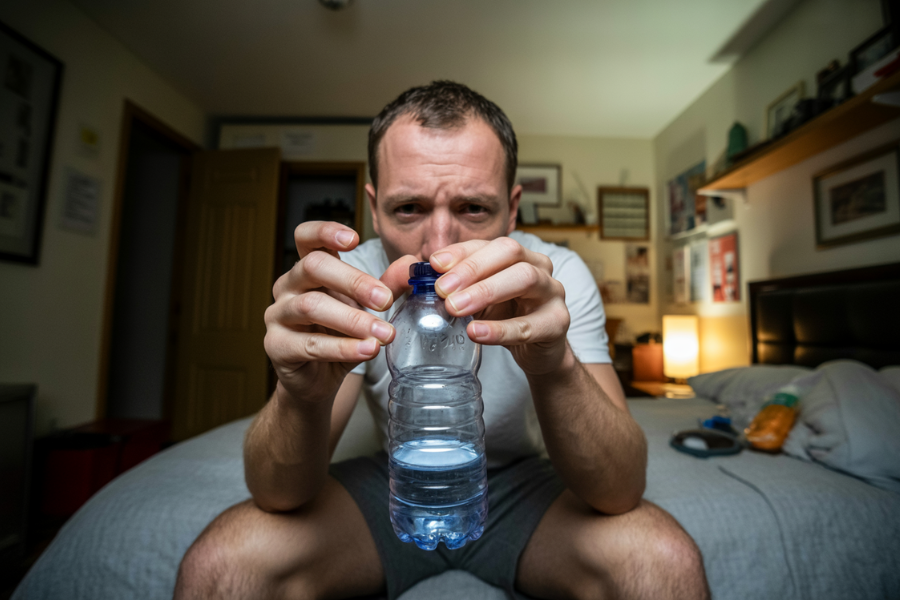
Quitting alcohol may sound like the healthiest choice, but in certain cases, withdrawal itself can be deadly. Symptoms like tremors, nausea, or severe anxiety should never be dismissed.
While rare, withdrawal can trigger seizures, hallucinations, or dangerous spikes in blood pressure. These complications require medical supervision, making hospitalization the safest path for people dependent on alcohol.
The lesson is clear: determination alone isn’t enough. Recovery needs guidance. If your body warns with trembling hands or overwhelming sickness, seek medical help immediately. Stubbornness without support can cost a life.
Protect Your Chest in Crowds

Crowds can become deadly when panic spreads. In a stampede, most injuries aren’t from trampling feet, but from crushed ribs that prevent breathing. Protecting your chest is the priority.
Experts recommend keeping your arms bent and hands in front of your chest. This simple posture creates a barrier, helping keep lungs free even when packed in tightly.
Staying upright is equally critical. If you fall, survival odds plummet. Move with the crowd, protect your chest, and focus on balance until you can move out of danger. And while crowds can crush you, do you know that language itself can trick you into making a deadly mistake?
The Word That Burns
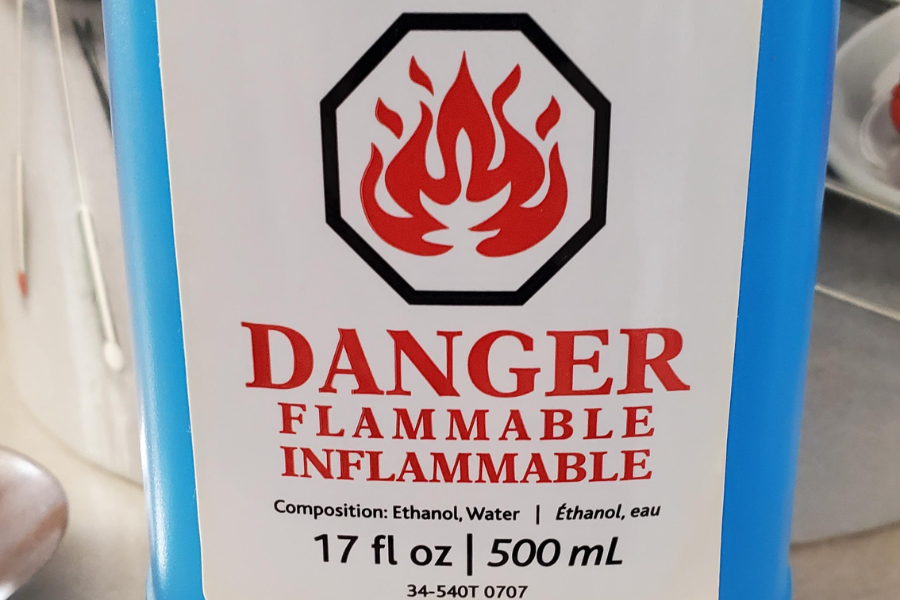
It sounds backward, but “inflammable” doesn’t mean non-flammable—it means the exact opposite. Something inflammable can easily catch fire, and assuming otherwise can lead to extremely dangerous mistakes.
u/Clean_Shoe_2454 recalled their favorite The Simpsons quote from Dr. Nick: “Flammable and inflammable mean the same thing?! What a country!” The joke captures a surprisingly deadly misunderstanding.
Inflammable means capable of bursting into flames without ignition. It’s a small linguistic trap with serious consequences. Treat “flammable” and “inflammable” equally—both mean you should keep away from fire. But if it’s you who catches fire… do this next life-saving tip.
Clothes On Fire
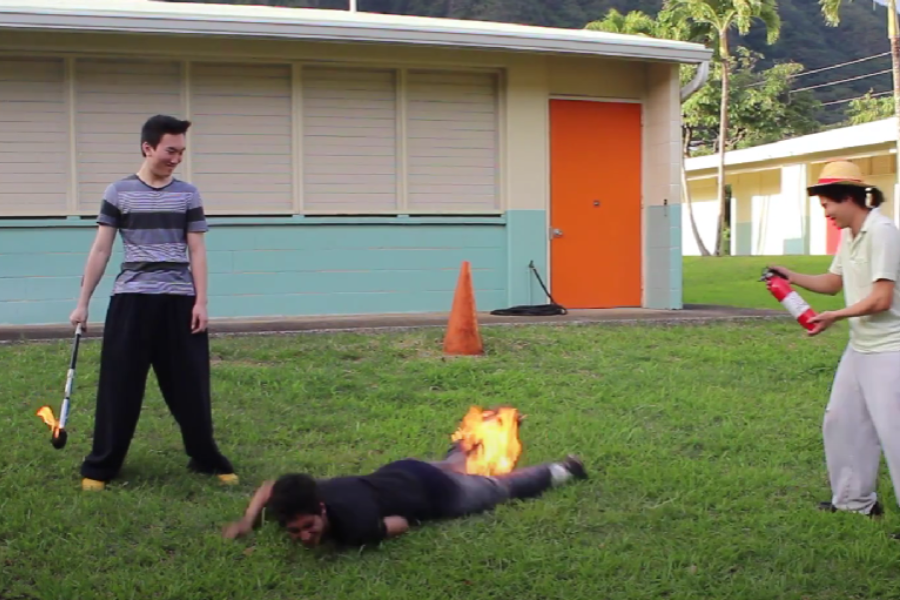
It’s a school drill burned into memory, but it’s lifesaving for a reason. If clothing catches fire, stopping movement prevents flames from feeding, while rolling smothers them out.
As u/Forward-Quote1671 reminded, always cover your face too. Protecting airways and skin is critical. The simple sequence may look childish, but fire doesn’t discriminate by age or setting.
So if the worst happens, remember the rhyme: Stop, Drop, and Roll! Sometimes old-school advice is the most practical. And in one tragic, unforgettable case, even the King of Pop became a poignant reminder of how fragile survival can be when the basics are overlooked.
CPR’s Basic Requirement
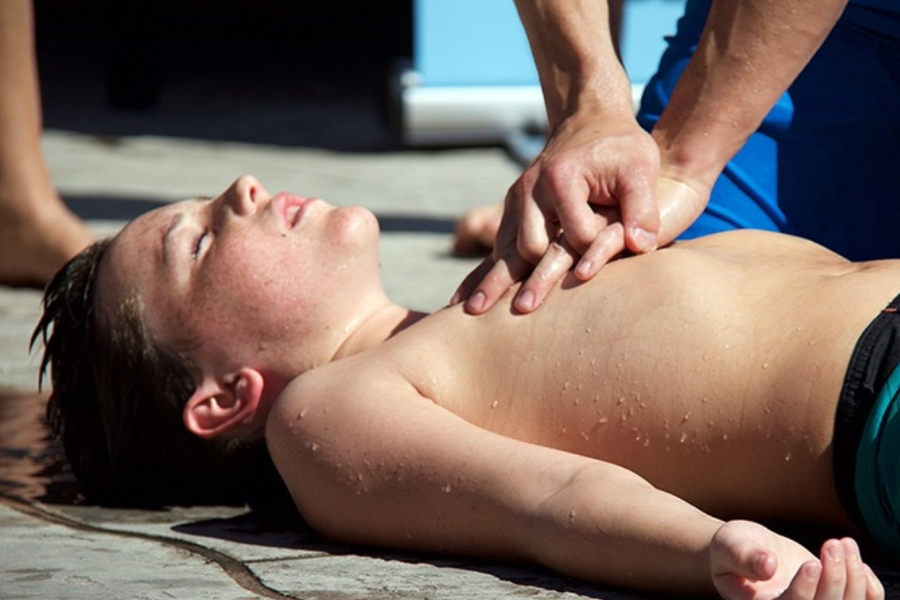
When someone collapses, CPR is often the first instinct. But doing it on a bed doesn’t work. A soft surface only absorbs the pressure instead of pushing the heart.
One story shared by u/Warp-10-Lizard recalled Michael Jackson’s death. Someone tried CPR on his bed, but as their mother said, “You’re just pushing the mattress up and down!”
It may feel harsh to drag someone onto the floor, but it’s the only way chest compressions are effective. Hard surface, steady rhythm, and persistence keep blood moving.
Clothes Keep Burning

When boiling water spills on skin, the real danger continues even after the splash. Hot, soaked clothing keeps burning, worsening damage every second it stays in place.
Redditor u/Raymont_Wavelength advised removing clothing immediately and running cool water over the burns. Continuous rinsing stops heat from sinking deeper, dramatically reducing tissue damage compared to leaving clothes in place.
Speed matters most. Delay only deepens the burn. This case isn’t the only thing that requires a simple mantra. The next one is about a life-saving move most people forget to do first.
Prioritizing Dangerous Places

If you can’t find your child at home, don’t waste time looking in harmless spots. Seconds count. Start with the most dangerous places—pools, freezers, washing machines, and dryers.
Searching for safe hiding places can wait. A child under the table for an extra minute is fine. A child trapped somewhere deadly may not have that minute, u/Swordsman82 warned.
Another parent, u/knuppi, backed this up with experience—spotting their toddler niece in danger of drowning because no other adults were watching the pool. Awareness and urgency prevented tragedy.
Pets Acting Strange

Cats and dogs often sense danger before humans. If your pet avoids certain parts of the house, hides, or seems unusually anxious, don’t brush it off as quirky behavior.
Heightened senses allow them to detect intruders, gas leaks, or even electrical faults. What feels like random barking or hissing may actually be a warning signal you shouldn’t ignore.
When pets act terrified for no reason, take a second look. In some cases, that awareness could save both your life and theirs. And if pets can sense danger, so can your instincts. The problem is, when that instinct instructs you to pull something out, and instead of saving, you kill.
Leave It In

Finding yourself or someone else impaled is terrifying. But pulling out a knife, stick, or shard could make bleeding worse! Often, that object is the only thing stopping blood loss.
Removing it should only be done by professionals, u/itaintme99 explained. The safest step is to keep the object in place, stabilize it if possible, and get medical help fast.
It feels unnatural to leave something inside a wound, but restraint matters. Your job is to minimize damage until trained hands take over. Sometimes saving a life means doing less.
Never Turn Your Back

Mountain lions, tigers, and other large cats are ambush predators. They wait for a distraction before attacking. Turning away gives them opportunity, while keeping eye contact signals awareness and strength.
Videos of zoo tigers show this clearly—turn your back, and the animal stalks. Face them again, and they freeze, waiting for the next lapse. The pattern is instinctive.
And as one TikTok user, gingersnap_deluxe333, added: never run. Running triggers their chase instinct, and no human can outrun them. To make things worse, wild animals aren’t the only predators to stalk you. Sometimes it’s the sky itself warning that you’re next.
Before Lightning Strikes

Nature sometimes gives warnings. If you’re outdoors and your hair suddenly lifts or tingles, it’s not static—it’s a sign you’re seconds away from a lightning strike.
User u/Crazyhorse16 shared that detail, stressing the danger. People often ignore the sensation until it’s too late, but it’s the body literally reacting to electrical charges building overhead.
If it happens, get low immediately. Move away from tall objects, crouch with feet together, and minimize contact with the ground. But not all traps are set by nature—the next one starts with a simple trick on the road.
The Egg Scam

Criminals sometimes throw eggs at windshields to trick drivers. The instinct is to use wipers, but that only smears the mess, blocking vision and forcing you to stop.
Stopping is exactly what attackers want—an isolated car, a distracted driver, and perfect timing to approach. By panicking or slowing, you hand over the advantage before realizing the setup.
The safest response is counterintuitive: keep driving. Head for a well-lit, populated area before cleaning the windshield. Eggs may block your view, but stopping could cost far more.
Don’t Lead Them Home

Suspicious cars behind you can trigger fear, but the worst mistake is leading them to your front door. Doing so puts both you and your home at risk.
u/Crazyhorse16 suggested making a series of turns. If they’re still there, call the police while heading to a populated place. The key is avoiding isolation until help arrives.
Stay calm, avoid your driveway, and never confront them alone. Outsmarting danger on the road may be as simple as refusing to go home. However, aside from suspicious followers, you also need to inspect the smallest details inside your car. They can put you at risk!
The Bottle Jam
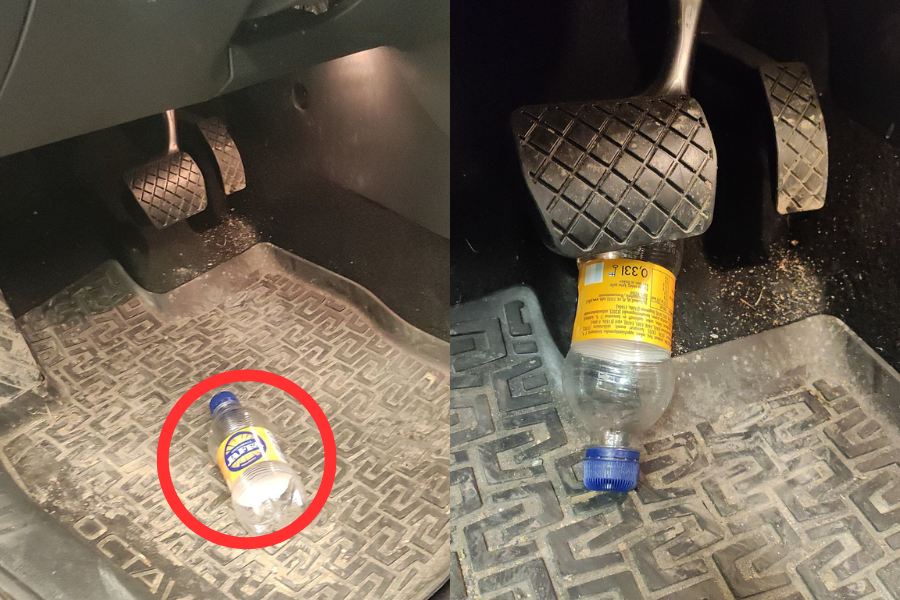
A loose bottle on the car floor seems harmless until it slides under the brake pedal. When that happens, stopping suddenly becomes impossible—and accidents follow fast.
One driver, u/dicecat4, recalled, “This happened to me except with a coke bottle. Jammed under the brake and fortunately there was a basketball goal directly behind the truck that stopped it.” The story could have ended far worse.
Keep floors clear. Secure bottles, cups, or anything that can roll. It’s one of those tiny oversights that turns into a catastrophe in a single unlucky moment.
Short Bursts Only
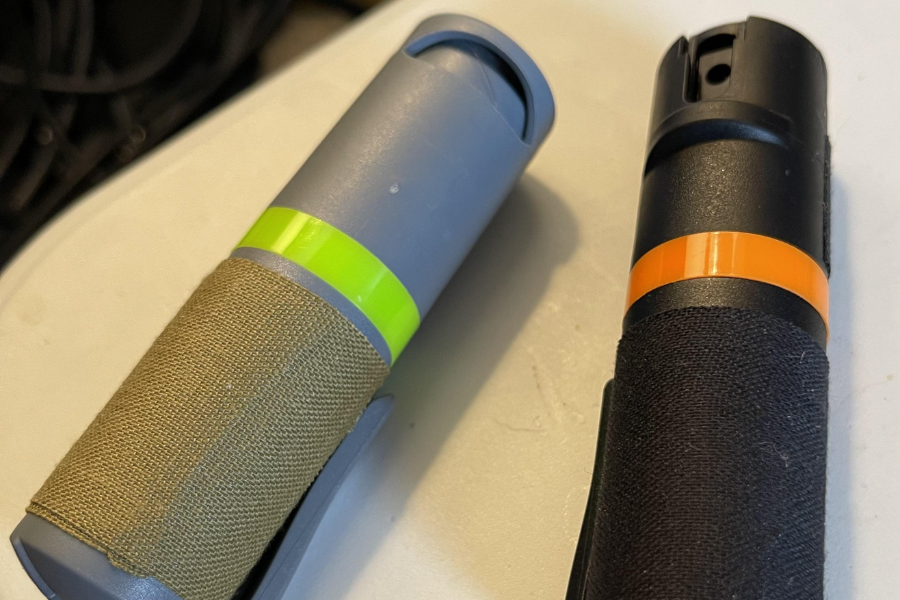
Pepper spray is a useful defense tool, but many don’t realize that cans only last around ten seconds. Firing continuously wastes it, leaving little left if your attacker keeps moving.
u/SecuritySky advised, “Use the spray in about 2-3 second intervals. That way if your attacker turns or doesnt get hit well enough, you have more for multiple rounds.”
One more tip came from u/Revolutionary_Tea331—don’t leave it in your car on hot days. Heat can cause it to explode, leaving you startled, blinded, and unarmed.
Count Before You Fly

Airplanes fill with smoke quickly in emergencies, and visibility can vanish. Counting the number of rows between your seat and the nearest exit ensures you can find it even in the darkness.
One commenter, u/takeyourvitam1ns, said, “My mom always taught me to count rows between your seat and the emergency exit. So if you can’t see where you are going you can feel where you are going. I’ll never forget that.“
Look around, count quietly, and tuck it into memory. It’s a small ritual with enormous payoff if the unthinkable happens at 30,000 feet. Clarity is essential during emergencies, and the next safety tip we have will demonstrate this even further.
Call Out One Name
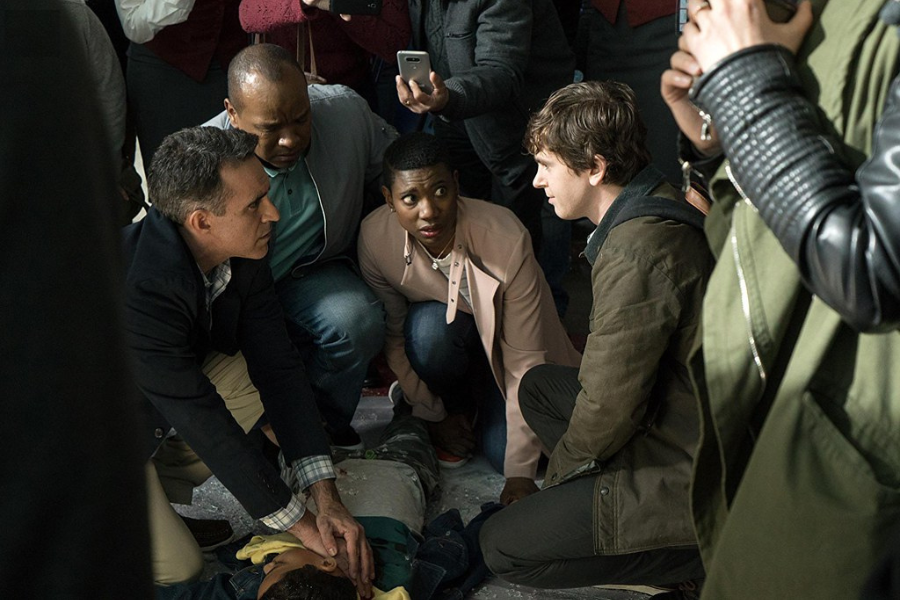
When accidents happen, crowds often freeze. Shouting “someone call 911!” sounds obvious, but psychology kicks in. Everyone assumes someone else will handle it, and nobody actually makes the call.
The solution is simple: point to a specific person and give them the responsibility. “What’s your name? Joe? Okay, Joe… call 911,” u/becomealamp demonstrated. Clarity cuts through hesitation and forces immediate action.
This isn’t about bossiness, it’s survival. In chaos, people need direction. Taking charge ensures that help is on the way, rather than everyone standing around waiting for someone else.
The 24-Hour Myth
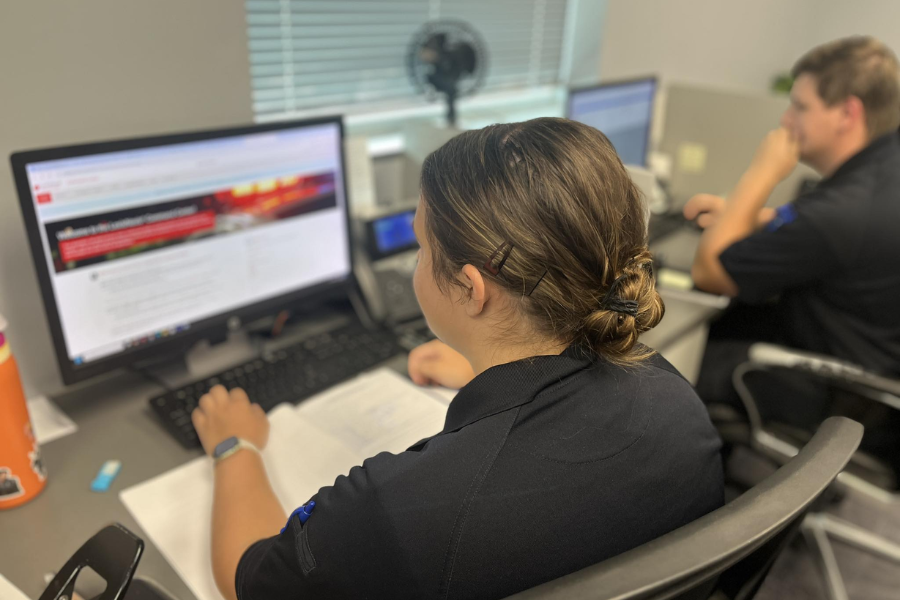
Television dramas have popularized the myth that you must wait 24 hours before reporting a missing person. In reality, every hour matters—delays reduce the chance of safe recovery.
Law enforcement encourages immediate reporting, especially for children or vulnerable adults. Early searches increase the likelihood of finding someone before harm or tracing their last known movements while the evidence is fresh.
So ignore the TV trope. Call right away. Seconds and minutes count, and there’s no penalty for acting quickly if the missing person turns up safe. And if urgency matters when someone disappears, it matters just as much when a test reveals something you never expected.
A Test No Man Expects
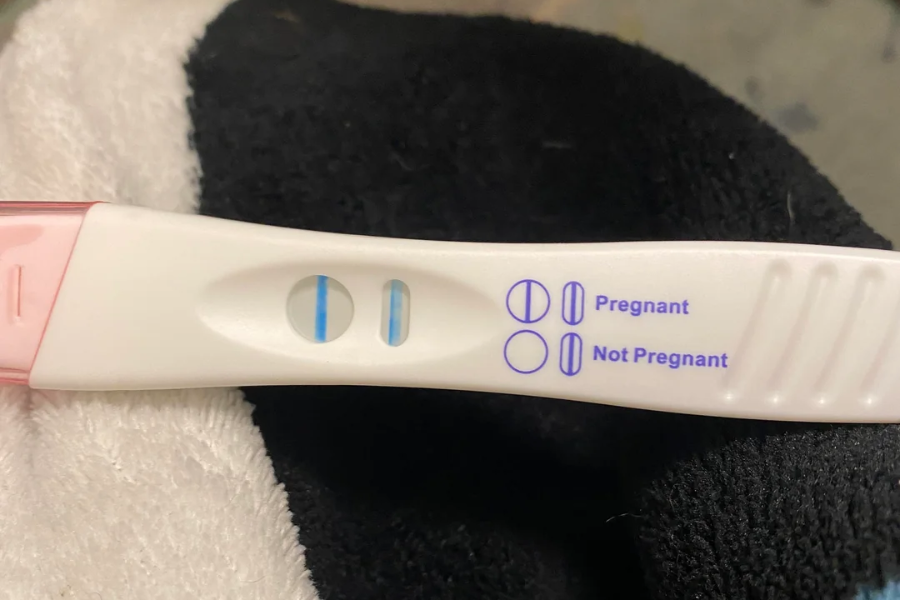
It sounds like an internet hoax, but it isn’t. A positive pregnancy test in a man may indicate testicular cancer because the same hormone, hCG, triggers both results.
The tests are designed to detect hCG levels in women, but certain tumors also release it. For men, a positive result is a serious warning—not a medical miracle.
It doesn’t replace proper diagnosis, but it can be a startling first clue. Anyone in this situation should see a doctor immediately, no exceptions. Early detection makes all the difference.
Pinch Before You Plunge

Diving into lakes or rivers can seem harmless, but water isn’t always clean. In rare cases, dangerous amoebas can enter through the nose, leading to devastating brain infections.
Holding your nose or wearing a nose clip is a simple habit that drastically reduces the risk. Stagnant and warm water carries a higher chance of hidden organisms.
You don’t need to avoid swimming. A simple pinch of the nose before plunging in can protect you against one of nature’s rare but deadliest dangers. But what if we tell you that the next threat might start in your own kitchen?
The Pantry Firefighter
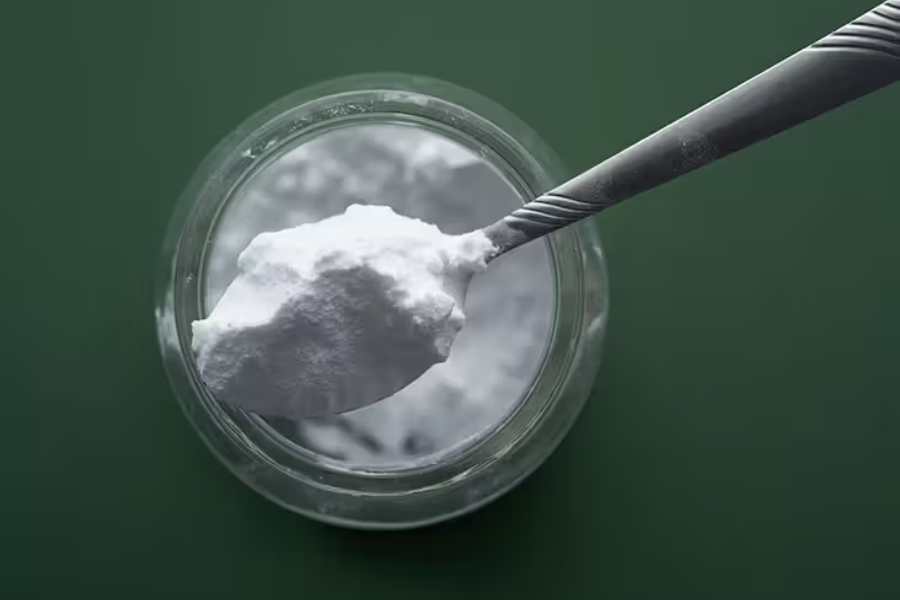
Kitchen fires spread fast, and not all can be fought with water. Grease and electrical flames in particular only worsen with water. A household staple, baking soda, smothers them instantly.
Keeping a box nearby when cooking or grilling is a cheap, simple precaution. Unlike fire extinguishers, it doesn’t expire quickly, and it works even when flames catch you off guard.
It may not feel like a heroic tool, but baking soda has saved countless kitchens. That unassuming box in your pantry might be the difference between smoke and safety.
When Rocks Explode
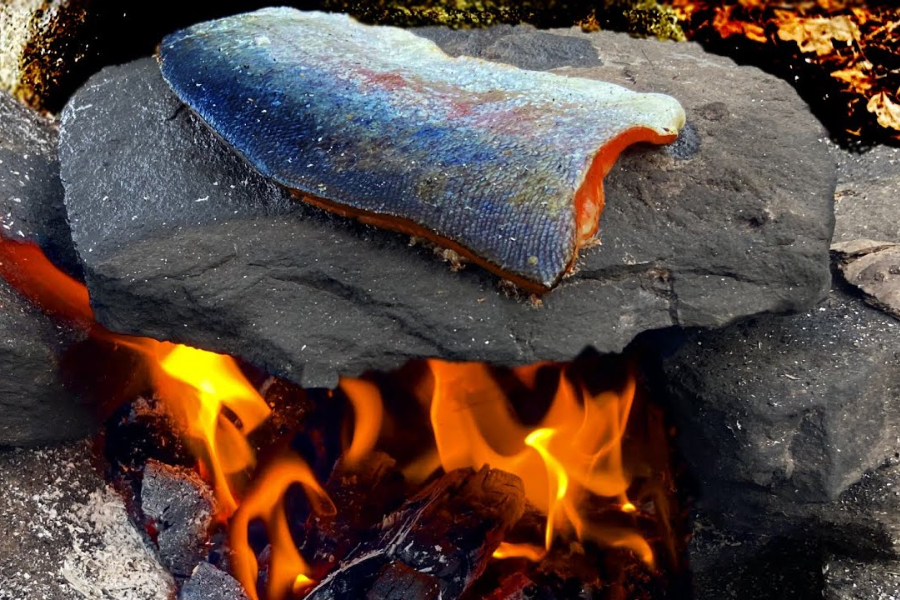
Rocks pulled from rivers may look perfect for a campfire ring, but hidden water inside them makes them unpredictable and dangerous when exposed to high heat.
u/SuvenPan further explained that absorbed water boils much faster than steam can escape. That trapped pressure eventually forces the rock to explode, scattering sharp, burning fragments in every direction.
Stick to dry, land-collected stones instead. Choosing the right rock may keep your fire comforting, not catastrophic. And camping safety doesn’t end with that; choosing the perfect rock is just the beginning. You also need to select the right person who should know your whereabouts.
Leave a Breadcrumb

Getting lost or injured is bad enough, but being untraceable makes it worse. Simply telling a friend, roommate, or family member where you’re headed increases rescue chances dramatically.
Hikers, travelers, and late-night commuters all benefit from this habit. It’s a safeguard that takes ten seconds but can mean the difference between being found in hours or weeks.
Even quick errands matter. A text—“headed out, back in an hour”—creates a trail. Independence is valuable, but a breadcrumb for safety is priceless. You don’t know when you need it.
Half-Open Windows Kill

Driving with car windows halfway down may feel casual, but in side collisions, it becomes deadly. The sharp edge of the glass can strike directly against the head.
One emergency worker, u/johngknightuk, recalled seeing victims decapitated this way after a T-bone accident. The force of impact turned the half-open window into a blade-like hazard.
The solution is simple: keep windows fully open or fully shut. Avoiding the halfway position removes the risk entirely. A small detail behind the wheel can save your life, like checking what’s inside.
Check the Back Seat
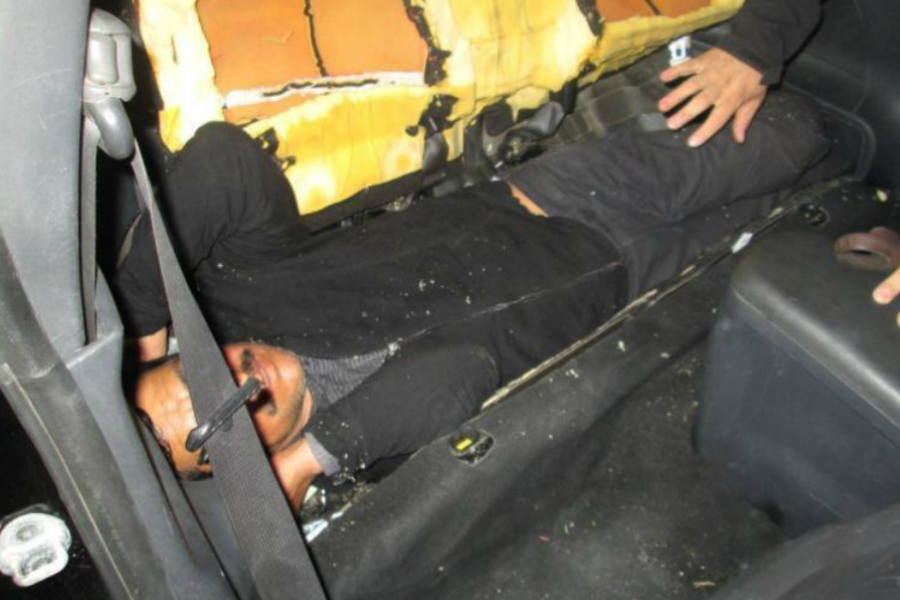
Getting into your car feels routine, but predators exploit that comfort. Hiding in the back seat, they wait until you’re inside, doors locked, and escape routes limited.
The danger isn’t cinematic—it’s practical. Criminals rely on surprise, and a dark, cluttered car makes spotting them harder. A quick glance can mean the difference between routine and attack.
Before sitting down, shine a light or visually scan. It takes seconds, but removes their advantage. Awareness turns your car from a trap into a safe space once again.
Lights On? Lights Off?
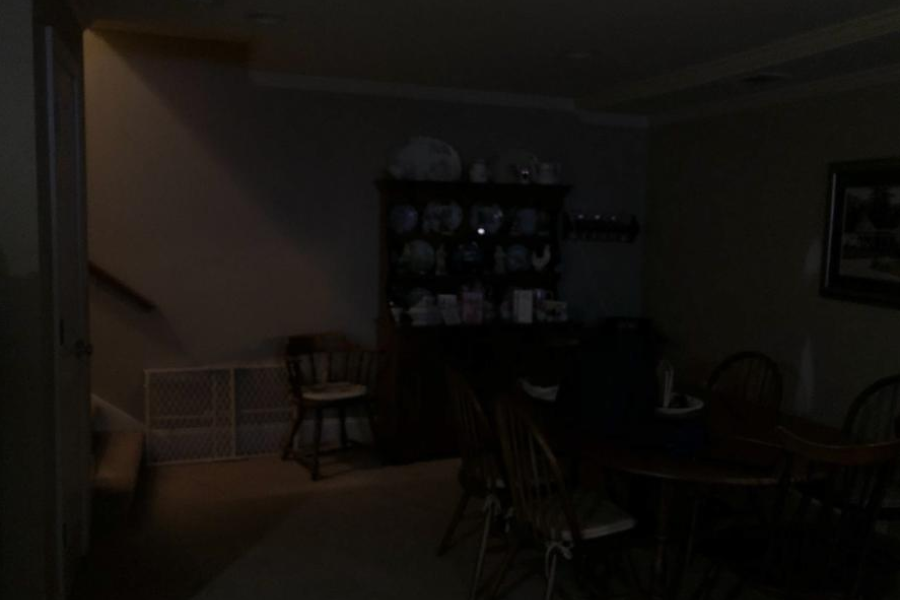
Your first instinct during a nighttime break-in may be to flip the lights on. But darkness is actually your advantage—you know the layout of your house better than an intruder.
Redditor u/curious_learner168 provided a thought-provoking reason: lights only level the playing field, giving burglars a clear view of paths and exits.
Use the cover of shadows to escape, call for help, or position yourself defensively. Light helps them more than you. But if an intruder is something that slithers in from the wild, 100% movies have taught you exactly the wrong thing to do.
Sucking a Snake Bite
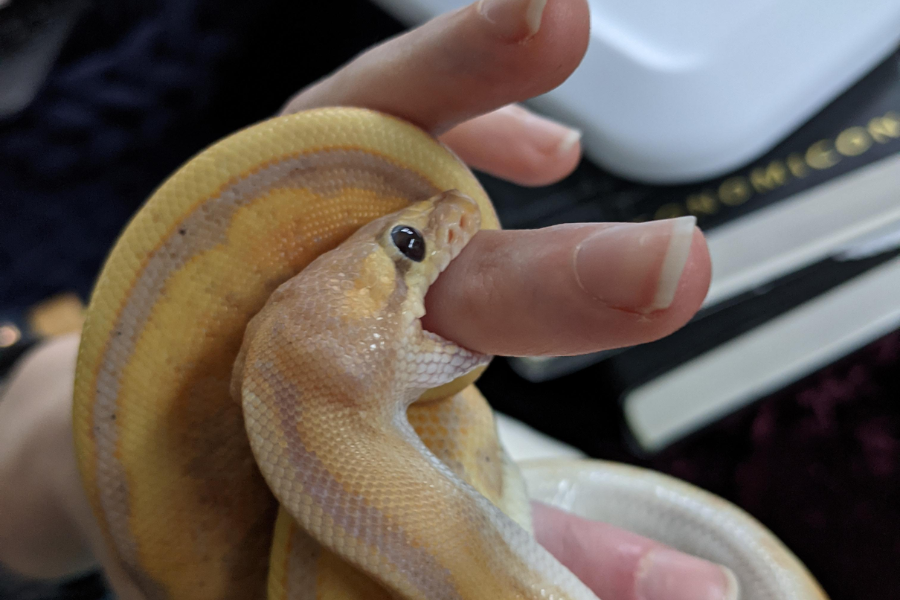
Movies show people sucking venom or tying off a limb, but in reality, both can do more harm than good. Improper treatment can worsen tissue damage and infection.
The safest response is simple: get the person out of harm’s way, have them lie down with the bite below the heart, and seek medical help immediately.
And remember, bites from wild mammals carry rabies risk. If bitten, always get the rabies vaccine promptly—it remains one of the deadliest diseases known when left untreated.
Second Opinions Save Lives
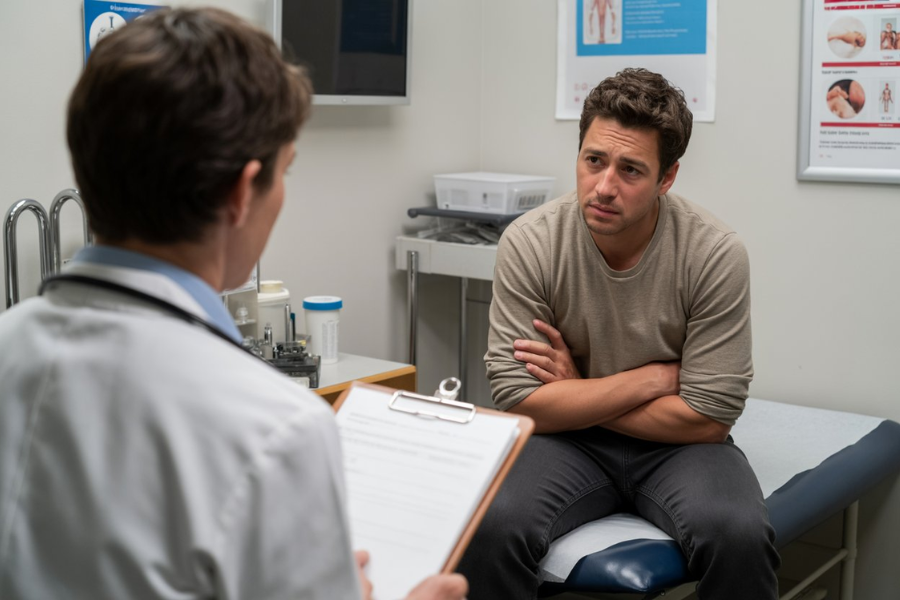
Doctors can make mistakes. If your symptoms persist and answers don’t add up, keep pushing. A second or even third opinion might be the only thing that saves your life.
Redditor u/Odd-Plant4779 told how repeated dismissals nearly killed them. “The ER doctor was making me drink over 20+ cups of ice water. The other doctor saw my lungs were full of water and one lung wasn’t working at all. As an adult, I really wish we sued or at least reported the ER doctor.”
The lesson: trust yourself. Doctors are human. If doubt nags at you, act on it. Stubbornness can also save you, like remaining stubbornly silent when put into the hot seat.
Silence Until Counsel
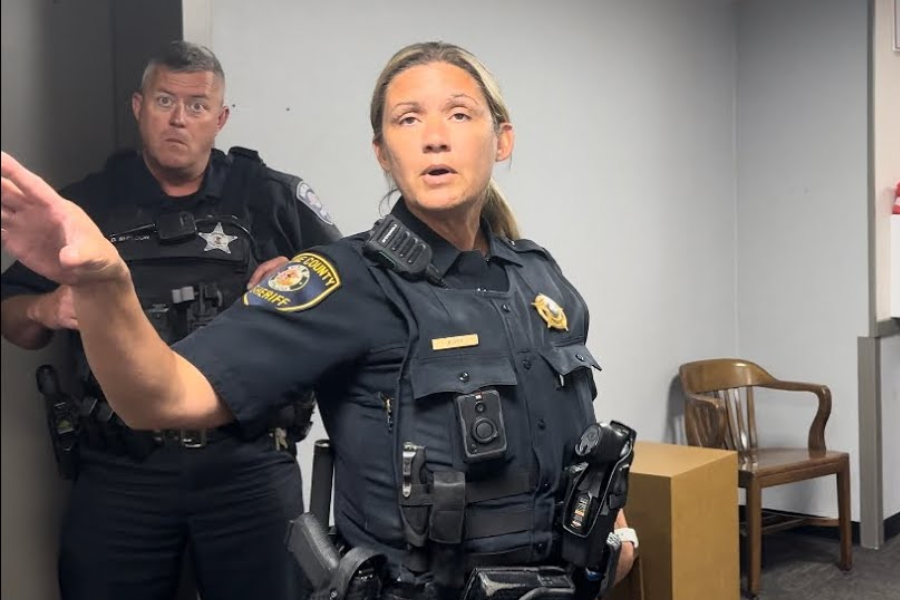
If you’re arrested, staying silent isn’t just smart—it’s essential. Even a casual “hello” can be twisted, and anything you say becomes part of the record against you.
Redditor u/SorrySomehow1970 emphasized how interrogations can get so intense that innocent people confess to crimes they never committed. The pressure, repetition, and fatigue break down even the strongest resolve.
The rule is simple: ask for a lawyer immediately and say nothing else. Protecting yourself isn’t about guilt—it’s about fairness in a system designed to use your words against you.

